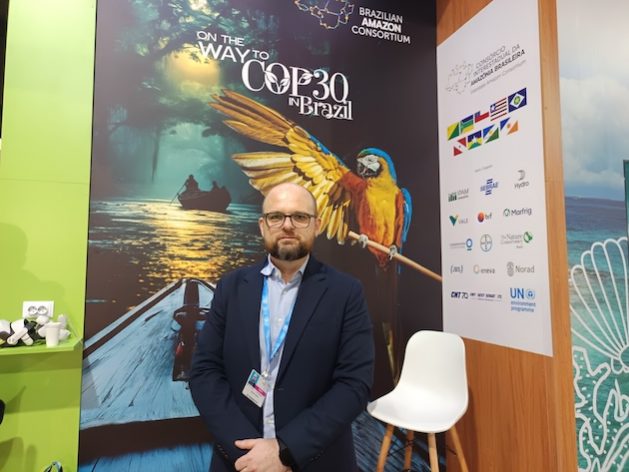
BAKU, Nov 19 (IPS) – Delegates representing Indigenous people’s rights have taken issue with the ongoing COP29 negotiations, calling for Parties to include text and language that promote Indigenous rights to be explicitly referenced in the consensus and outcome documents.
Faced by multiple, complex challenges, they want legal, socio-political and economic barriers removed to enable Indigenous communities to lead meaningful lives with all the tools necessary to address the climate change crises. They especially want respect and promotion of their human rights and rights to land and natural resources to which they have been connected for millennia.

“I’m from the Indigenous community of the Niger Delta and climate change is a reality for us. We are seeing the extinction of our local foods and agricultural and medicinal products and a dangerous rise in the sea level. We are losing our ancestral lands and resources and this means us losing our lifeline,” Prince Israel Orekha from Connected Advocacy for Empowerment and Youth Development during the interview told IPS.
“In my community, we are predominantly farmers, but dependence on fossil fuels in the Global North has negatively affected our farmlands and season after season, we are losing more and more farm yields. Our days are filled with worries and our life expectancy has reduced to 42 percent. We need an outcome that will give us a fresh start and an environment from which to draw clean breath and meaningful livelihoods. Let us breathe.”
Orekha said Indigenous people from the Global South are in a more disadvantaged position and too disenfranchised to mount an effective war against climate change. Stressing the need for localization of climate action so that all people everywhere can significantly contribute to and push forward effective climate action.
“Today, we are here to speak in one voice and say that Indigenous people should be included in all meaningful ways. And part of that is to ensure that people and places where Indigenous people represent them must also feature prominently in those economies and in all aspects of life. So, we should not be sidelined and the wisdom that we have with us, passed down through generations, could make a difference in designing workable climate solutions and yet, we have been left out of decision-making tables,” he said.
Stressing that the marginalization of Indigenous people “is astounding and counterproductive, especially because we are the frontline communities. We bear the brunt of climate change. Policies and programs must be inclusive and promote equity and justice. We remain excluded but hopeful that, at last the spell will be broken, and there will be something substantive for us at COP29 Baku.”
IPS UN Bureau Report
Follow @IPSNewsUNBureau
Follow IPS News UN Bureau on Instagram
© Inter Press Service (2024) — All Rights ReservedOriginal source: Inter Press Service



Leave a Comment